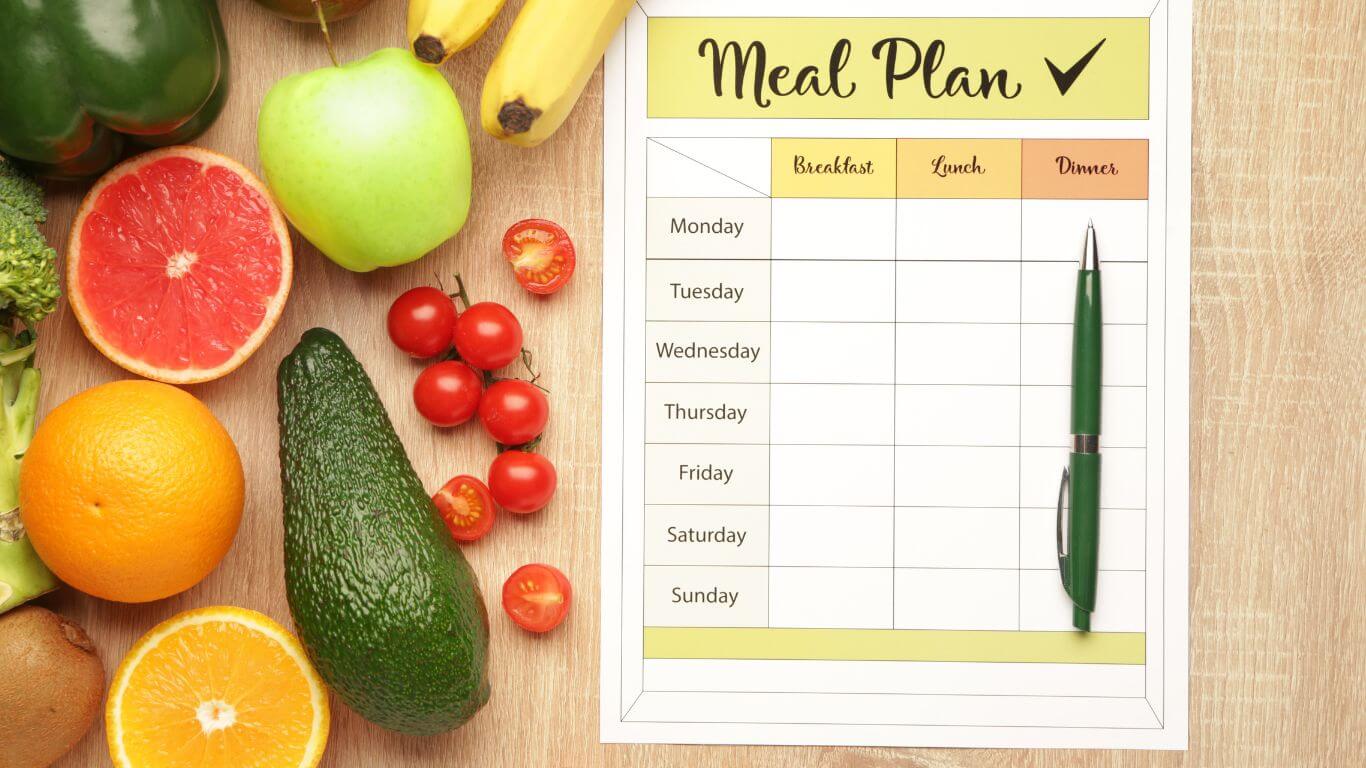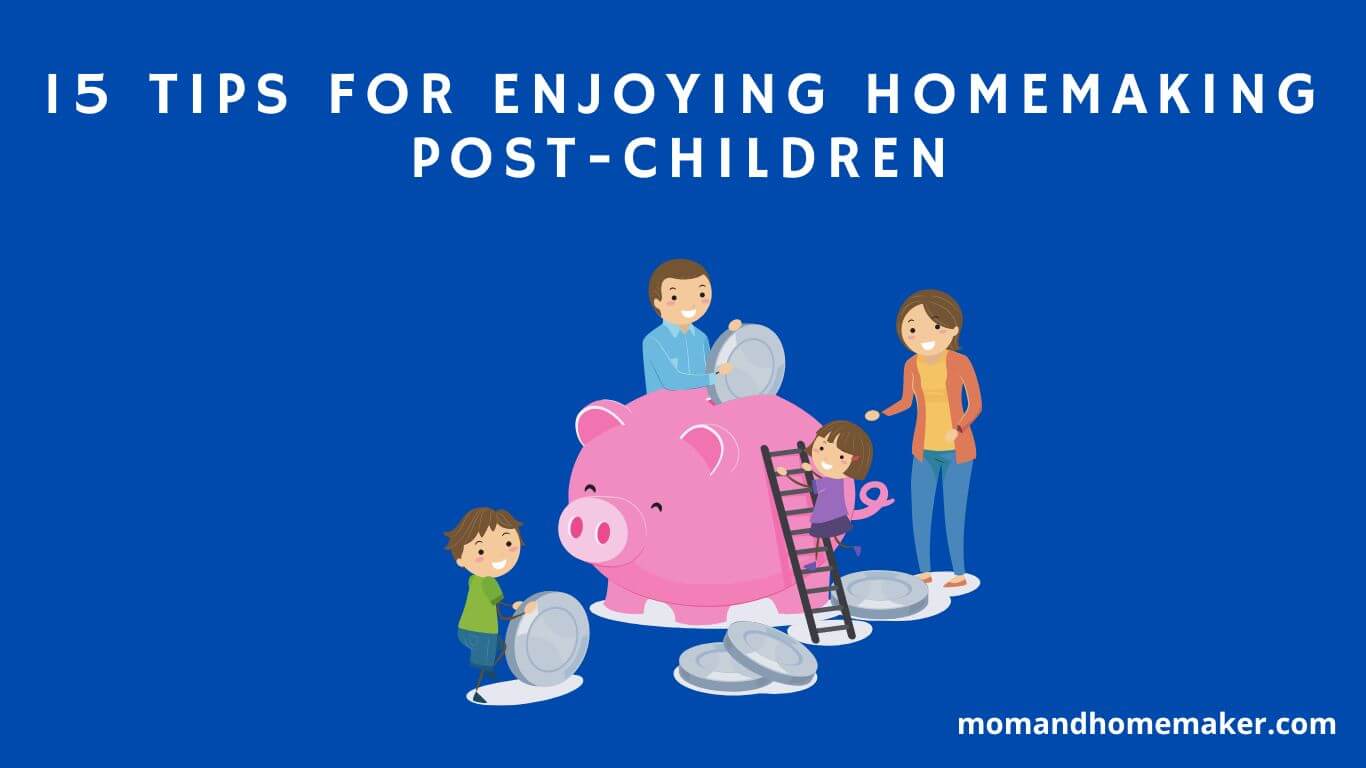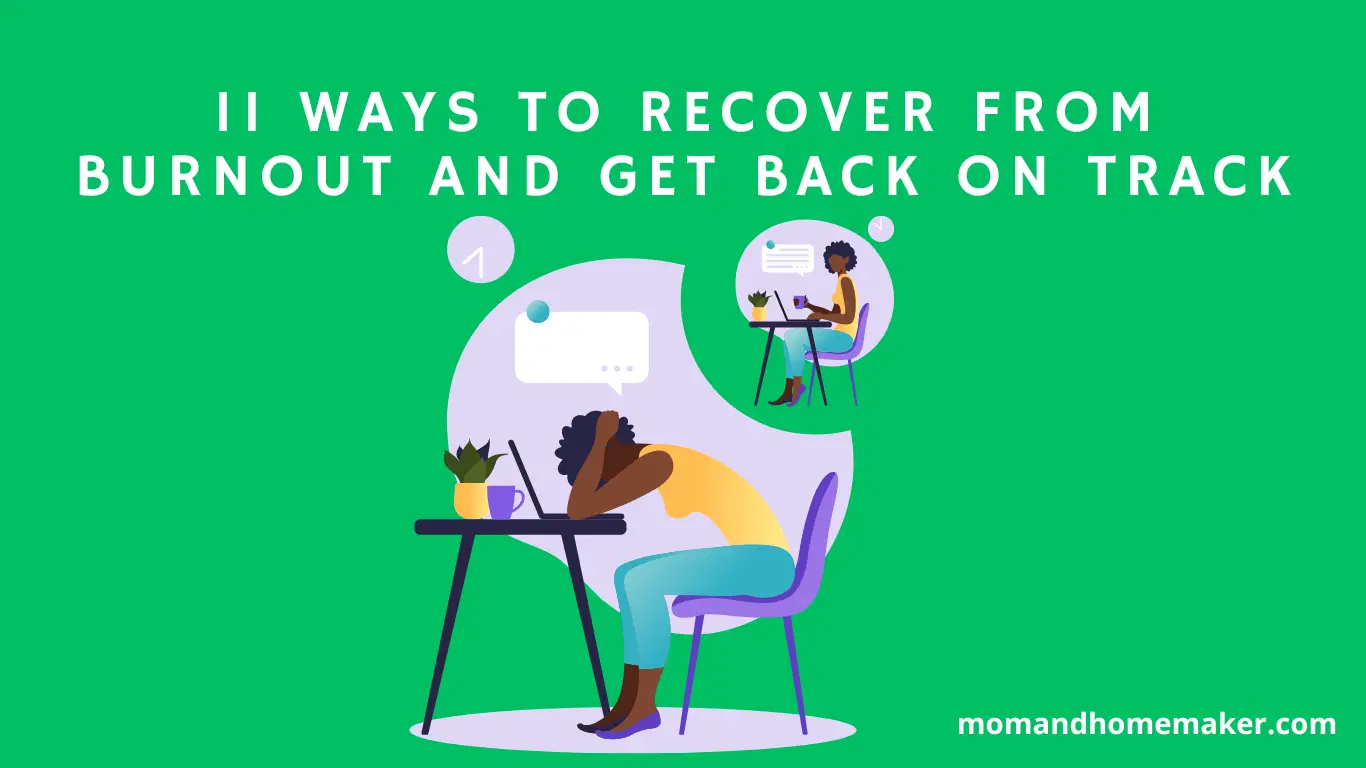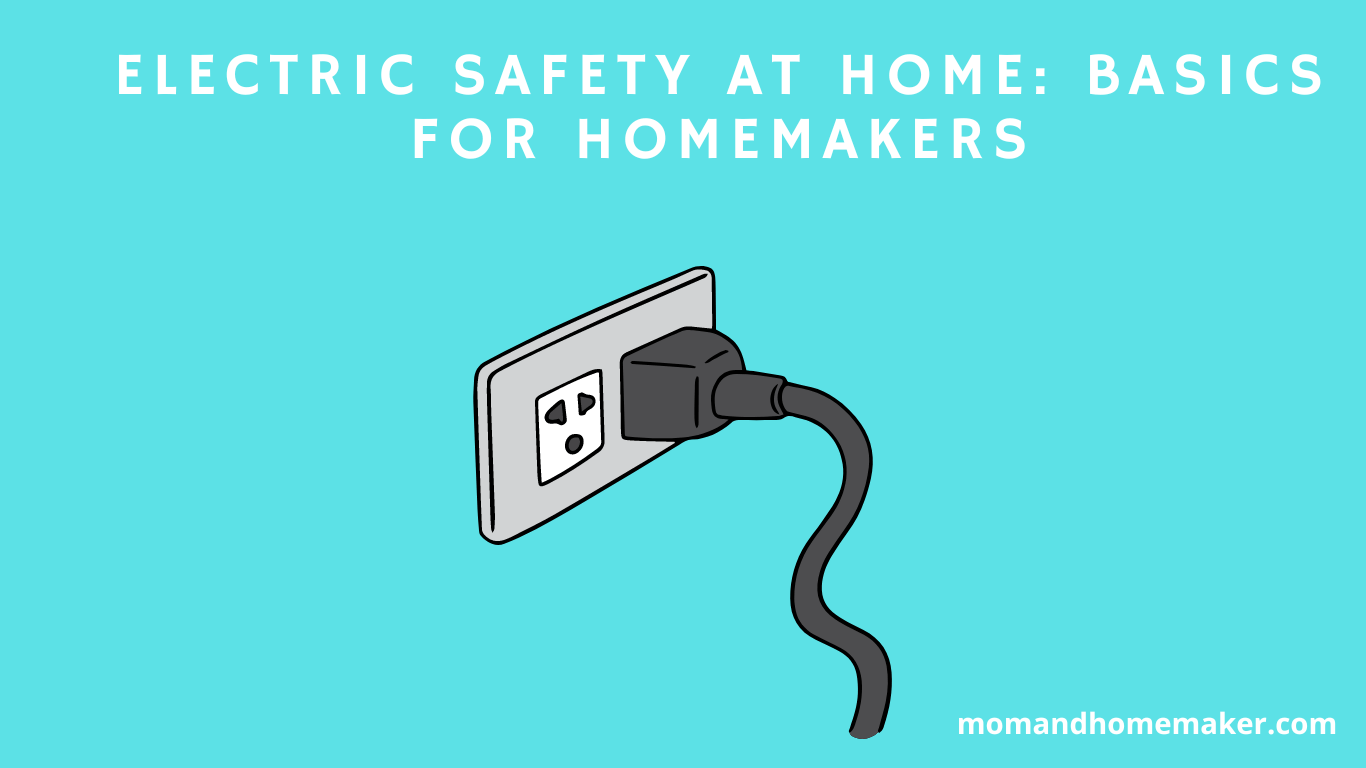In today’s fast-paced world, busy professionals often find themselves struggling to maintain a healthy and balanced diet. With long work hours, meetings, and various other commitments, it can be challenging to find the time to plan and prepare nutritious meals. However, incorporating effective meal planning strategies into your routine can make a significant difference in ensuring that you eat well despite your hectic schedule.
So whether you’re a CEO or an entrepreneur on the go, relax I have rounded up some top-notch meal-planning strategies tailored specifically to suit your hectic life. Get ready to reclaim control over your nutrition while still conquering the business world like the boss that you are.
Prioritize Your Health
To prioritize your health as a busy professional, start by making smart food choices and incorporating regular exercise into your routine. Healthy eating habits are essential for maintaining energy levels and promoting overall well-being. As a busy professional, it can be challenging to find the time to prepare nutritious meals, but with some planning and preparation, it’s achievable.
Consider meal prepping on weekends or batch-cooking meals that can be easily reheated throughout the week. This will save you time and ensure that you have healthy options readily available.
Balancing work and health is crucial for long-term success and happiness. It’s important to find a routine that works for you and allows time for self-care. Incorporating exercise into a busy schedule doesn’t have to be complicated. Even short bursts of physical activity can have significant benefits.
Consider taking the stairs instead of the elevator or fitting in a quick workout during your lunch break. Prioritizing exercise won’t only improve your physical health but also help manage stress and boost productivity.
Speaking of stress, managing it is vital for better health. High levels of stress can negatively impact both your physical and mental well-being. Find stress-relieving activities that work for you, whether it’s practicing mindfulness, engaging in a hobby, or spending time with loved ones. Remember, taking care of your health isn’t a luxury but a necessity.
By making smart food choices, finding time for exercise and self-care, and managing stress effectively, you can prioritize your health and thrive as a busy professional.
Assess Your Schedule
When assessing your schedule as a busy professional, it’s important to consider your daily commitments and how they may impact your meal planning strategies. By taking the time to assess your schedule, you can better understand how to fit meal planning into your busy life.
Here are some tips to help you assess your schedule effectively:
- Assess how much time you have available each day for meal planning and preparation. Look for pockets of time, such as during your commute or lunch break, when you can plan and prepare meals.
- Prioritize tasks based on their importance and urgency. Identify which tasks are essential and which can be delegated or postponed. This will help you allocate time for meal planning without sacrificing other important responsibilities.
- Use time management techniques and productivity hacks to make the most of your available time. Set timers, use to-do lists, and break tasks into smaller, manageable chunks to increase efficiency.
- Implement scheduling tips, such as blocking off specific times for meal planning and preparation in your calendar. Treat these times as non-negotiable commitments to ensure you prioritize meal planning in your busy schedule.
Set Realistic Goals
Once you have assessed your schedule and determined how to fit meal planning into your busy life, it’s time to set realistic goals to ensure success.
Setting realistic expectations is crucial when it comes to meal planning. Understand that you may not be able to prepare elaborate meals every day, and that’s okay. Focus on finding a balance that works for you.
Effective time management is key to achieving your meal planning goals. Look for meal prep hacks that can help you save time and make the process more efficient.
For example, you can cook large batches of food and freeze them in individual portions for quick and easy meals throughout the week. This way, you can enjoy home-cooked meals even on your busiest days.
While it’s important to eat healthily, it’s also okay to indulge in moderation. Incorporate healthy indulgences into your meal plan to satisfy your cravings without derailing your progress.
Plan for budget-friendly options by choosing ingredients that are affordable and versatile. This way, you can save money while still enjoying delicious and nutritious meals.
Plan Meals in Advance
Now that you have set realistic goals for your meal planning journey, it’s time to delve into the next strategy – plan your meals in advance. Planning your meals ahead of time can be a game-changer when it comes to saving time, eating healthier, and staying on track with your goals. Here are some meal prepping tips to help you get started:
- Create a meal schedule: Plan out your meals for the week, including breakfast, lunch, dinner, and snacks. This will ensure that you have a clear idea of what to eat each day and avoid last-minute decisions.
- Make a grocery list: Once you have your meal schedule, make a detailed grocery list of all the ingredients you need. This will save you time at the grocery store and prevent you from forgetting anything.
- Batch cook and portion meals: Spend a few hours on the weekend cooking large batches of meals that can be easily portioned and stored for the week. This will save you time during busy weekdays and ensure that you have healthy meals ready to go.
Planning your meals in advance has numerous benefits, including saving time, reducing stress, and helping you make healthier food choices. By following these meal prepping tips and incorporating time-saving meal planning strategies, you can make meal planning a habit and enjoy the benefits it brings to your busy professional life.
Choose Quick and Easy Recipes
To continue streamlining your meal planning process, opt for quick and easy recipes that seamlessly fit into your busy schedule. When it comes to meal planning, it’s important to choose recipes that aren’t only quick to make but also healthy and delicious. By incorporating quick and healthy recipes into your meal plan, you can save time and still enjoy nutritious meals.
One time-saving meal idea is to focus on meals that require minimal prep and cooking time. For example, stir-fries are a great option as they can be made in just a few minutes and can be packed with vegetables and lean proteins.
Another quick and healthy option is sheet pan meals, where you can simply throw all your ingredients onto a sheet pan and bake them together. This saves time on both prep and cleanup. There are several meal planning hacks and meal prep tips that can help you create easy weeknight dinners. One strategy is to batch cook and prepare ingredients in advance.
For example, you can cook a large batch of chicken breasts at the beginning of the week and use them in different recipes throughout the week. Another tip is to use versatile ingredients that can be used in multiple dishes, such as quinoa or roasted vegetables.
Make a Weekly Meal Calendar
To streamline your meal planning process and stay organized, start by creating a weekly meal calendar. This simple step can save you time, reduce stress, and help you make healthier choices.
Here are some meal prep tips to help you create a weekly meal calendar that works for you:
- Plan your meals around your schedule: Take into account your busiest days and plan for quick and easy meals on those days. This will ensure that you have time to prepare and enjoy your meals without feeling rushed.
- Include budget-friendly meals: Look for recipes that use affordable ingredients and plan meals that make use of leftovers. This will help you save money while still enjoying delicious and nutritious meals.
- Utilize meal planning apps: Take advantage of meal planning apps that can help you organize your recipes, create shopping lists, and even provide nutritional information. These apps can make meal planning for families or meal planning for weight loss much easier and more convenient.
By following these meal prep tips and creating a weekly meal calendar, you can save time, money, and stress while still enjoying delicious and healthy meals.
Optimize Your Grocery Shopping
For optimal grocery shopping, utilize a shopping list and prioritize nutritious ingredients that align with your meal plan. Planning your meals in advance not only helps you stay organized but also saves you time and money.
When you have a clear idea of what you need, you can avoid unnecessary purchases and stick to your grocery budget. Meal prepping is an excellent strategy to optimize your grocery shopping. By preparing meals in advance, you can buy ingredients in bulk and save money in the long run.
It allows you to allocate specific time slots for cooking, making it easier to manage your busy schedule. When creating your shopping list, don’t forget to include healthy snacks. Having nutritious options readily available will prevent you from reaching for unhealthy alternatives when hunger strikes. Look at items like fresh fruits, vegetables, nuts, and yogurt for a quick and satisfying snack.
Recipe organization is another crucial aspect of optimizing your grocery shopping. By categorizing your recipes and keeping them in one place, you can easily plan your meals and create a comprehensive shopping list. There are various digital tools and apps available that can help you streamline this process.
Stock Up on Staples
Make sure you stock up on essential pantry items to simplify your meal planning and save time in the kitchen. Having a well-stocked pantry can be a game-changer when it comes to preparing meals quickly and efficiently.
Here are some pantry essentials and meal planning hacks to help you streamline your cooking process:
- Pantry essentials:
- Canned goods such as beans, tomatoes, and broth for quick and easy meal bases.
- Grains like rice, quinoa, and pasta, which can be the foundation of many meals.
- Condiments and spices to add flavor to your dishes, such as salt, pepper, herbs, and spices.
- Meal planning hacks:
- Plan your meals in advance to avoid last-minute decision making and reduce stress.
- Batch cook and freeze meals to have ready-made options for busy days.
- Use versatile ingredients that can be used in multiple recipes to minimize waste.
- Time-saving tips:
- Prep ingredients in advance, such as chopping vegetables or marinating meats, to save time during the week.
- Utilize kitchen gadgets like a slow cooker or instant pot for hands-off cooking.
- Cook in bulk and portion out meals for easy grab-and-go options throughout the week.
Prep Ingredients in Advance
To streamline your meal preparation process and save time in the kitchen, start by prepping ingredients in advance. By preparing ahead, you can effectively manage your time and ensure that you have everything you need to create delicious meals throughout the week. This strategy not only helps with time management but also promotes portion control, recipe organization, and ingredient storage.
To make the most of your ingredient prep, consider using the following table as a guide:
| Ingredient | Prep Method | Storage |
|---|---|---|
| Vegetables | Wash, chop, and store in airtight containers | Refrigerator |
| Protein (meat, poultry, tofu) | Marinate and portion into individual servings | Freezer |
| Grains (rice, quinoa, pasta) | Cook and store in separate containers | Refrigerator |
| Sauces and dressings | Prepare and store in small jars or containers | Refrigerator |
| Herbs and spices | Wash, chop, and store in airtight containers | Refrigerator or freezer |
Utilize Leftovers
When you have leftovers from previous meals, you can make the most of them by incorporating them into new dishes. This not only helps in reducing food waste but also saves you time and money.
Here are some creative ways to utilize leftovers:
- Leftover Recipes: Transform your leftovers into delicious new meals. For example, use leftover roasted chicken to make a chicken salad or add it to a stir-fry. Leftover vegetables can be turned into a hearty soup or used as a filling for omelets or quesadillas.
- Meal Prepping: Plan your meals in advance to include the use of leftovers. Cook larger portions of dishes like lasagna, casseroles, or stews that can be enjoyed for multiple meals throughout the week. This way, you’ll have ready-made meals on busy days without much effort.
- Utilizing the Freezer: If you can’t finish your leftovers immediately, freeze them for later use. Portion them into individual servings, label and date them, and store them in the freezer. This way, you’ll always have a quick and convenient meal option on hand when you’re short on time.
Embrace Batch Cooking
To optimize your meal planning as a busy professional, consider embracing batch cooking as a way to save time and effort in the kitchen. Batch cooking involves preparing larger quantities of food at once, which can then be portioned out and stored for future meals.
This strategy offers several benefits that make it worth incorporating into your meal planning routine. One of the main benefits of batch cooking is the time-saving aspect. By cooking in larger quantities, you can minimize the amount of time spent in the kitchen throughout the week.
Instead of having to cook every day, you can simply reheat a pre-prepared meal, allowing you to focus on other tasks or enjoy some much-needed downtime. Another advantage of batch cooking is that it allows you to take advantage of meal prep tips and time-saving strategies.
By planning out your meals in advance and cooking in bulk, you can streamline your grocery shopping, reduce food waste, and ensure that you always have healthy, homemade options readily available. To make batch cooking even more convenient, consider incorporating freezer-friendly recipes into your meal planning.
These are meals that can be prepared ahead of time, stored in the freezer, and then thawed and reheated when needed. This not only extends the shelf life of your meals but also provides you with a variety of options to choose from throughout the week.
Incorporating batch cooking into your meal planning routine is a meal planning hack that can save you time, effort, and stress in the kitchen. By investing a little extra time upfront, you can enjoy the convenience of having nutritious meals ready to go whenever you need them.
| Batch Cooking Benefits | Meal Prep Tips |
|---|---|
| Saves time and effort | Plan your meals in advance |
| Reduces the need for cooking every day | Cook in larger quantities |
| Streamlines grocery shopping and reduces food waste | Incorporate freezer-friendly recipes |
Invest in Time-Saving Kitchen Appliances
If you want to further streamline your meal planning as a busy professional, consider investing in time-saving kitchen appliances. These appliances can help you save valuable time and energy in the kitchen, allowing you to focus on other tasks and enjoy delicious meals without spending hours cooking.
Here are three subtopics to help you understand the benefits of these appliances:
- Time-saving recipes: With the right kitchen appliances, you can find a plethora of time-saving recipes online or through meal planning apps. These recipes often use efficient cooking techniques that help you prepare meals quickly and easily. From one-pot meals to slow cooker recipes, there are plenty of options to choose from.
- Efficient cooking techniques: Kitchen appliances like pressure cookers, air fryers, and multicookers are designed to cook food faster and more efficiently. These appliances use advanced technology to reduce cooking time while still delivering delicious results. By utilizing these tools, you can cut down on cooking time and have meals ready in no time.
- Kitchen organization and meal prep hacks: Time-saving appliances can also help you stay organized in the kitchen and make meal prep a breeze. Appliances like food processors, blenders, and electric choppers can help you quickly chop, blend, and mix ingredients, saving you time and effort. Additionally, investing in appliances with built-in storage options can help you keep your kitchen clutter-free and make meal prep even more efficient.
Investing in time-saving kitchen appliances is a practical and effective way to streamline your meal planning and save time in the kitchen. By incorporating these appliances into your routine, you can enjoy delicious meals without sacrificing precious time and energy.
Incorporate Meal Delivery Services
To further simplify your meal planning as a busy professional, consider incorporating meal delivery services into your routine. Meal delivery options provide a convenient and time-saving solution for individuals who struggle to find the time to cook or grocery shop.
These services offer a wide range of benefits, such as saving time on meal preparation and reducing the stress associated with meal planning. With just a few clicks, you can have delicious and nutritious meals delivered right to your doorstep.
One of the main benefits of meal delivery services is the convenience they offer. Instead of spending time grocery shopping and meal prepping, you can simply choose your meals from a menu and have them delivered to your home or office. This can save you valuable time that can be better spent on other important tasks or activities.
However, it’s important to consider some drawbacks of meal delivery services. One potential drawback is the lack of customization options. While many services offer a variety of meals to choose from, you may not have complete control over the ingredients or portion sizes.
The cost of meal delivery services can vary depending on the provider and the specific plan you choose. It’s important to factor in these costs when considering incorporating meal delivery into your routine.
Create a Meal Prep Routine
Start by establishing a consistent meal prep routine to streamline your busy professional schedule. Meal prep is a game-changer when it comes to saving time and ensuring you have nutritious meals ready to go throughout the week. Here are some meal prep tips to help you succeed:
- Plan your meals: Take some time each week to plan your meals and create a grocery list. This will help you stay organized and ensure you have all the ingredients you need.
- Batch cook: Cook a large quantity of food at once and portion it out into individual servings. This will save you time during the week and make it easier to grab a healthy meal on the go.
- Use meal prep containers: Invest in good quality meal prep containers that are divided into compartments. This will help you portion out your meals and keep them fresh for longer.
Meal prep has numerous benefits, including saving time, reducing stress, and helping you make healthier food choices. By implementing these meal prep ideas and hacks, you can take control of your nutrition and set yourself up for meal prep success.
Use Technology to Your Advantage
One effective strategy is to leverage technology to optimize your meal planning as a busy professional. Using technology tools can help streamline the process, save time, and ensure that you have nutritious meals ready to go.
Meal tracking apps, for example, allow you to keep track of your daily calorie intake, macronutrient breakdown, and exercise routine. This can help you make informed decisions about your meals and ensure that you’re meeting your nutritional goals.
Recipe apps are another useful tool for busy professionals. These apps provide a wide variety of recipes, ranging from quick and easy meals to more elaborate dishes. You can search for recipes based on specific ingredients or dietary restrictions, making it easier to find meals that suit your preferences and needs.
Online grocery shopping is also a game-changer for busy professionals. Instead of spending time at the store, you can simply order your groceries online and have them delivered to your doorstep. This saves time and eliminates the need to navigate crowded aisles and long checkout lines.
Meal planning apps can help you organize your meals for the week. These apps allow you to create meal plans, generate shopping lists, and even track your inventory. With a few taps on your smartphone, you can plan your meals, shop for ingredients, and have a clear roadmap for the week ahead.
Incorporating technology into your meal planning routine can significantly simplify the process and make it more efficient. By leveraging the power of technology tools, you can save time, eat healthier, and ensure that you’re well-prepared for your busy schedule as a professional.
Opt for Simple and Nutritious Meals
Leveraging technology to optimize your meal planning as a busy professional, you can now focus on opting for simple and nutritious meals. With the help of quick meal ideas, healthy meal options, and time-saving recipes, you can enjoy delicious and satisfying meals without sacrificing your precious time.
Here are some practical tips to help you enjoy simple and nutritious meals:
- Quick Meal Ideas:
- Whip up a vegetable stir-fry with pre-cut veggies and lean protein for a speedy and nutritious dinner.
- Prepare a protein-packed salad with canned tuna, beans, and fresh vegetables for a satisfying lunch on the go.
- Make a batch of overnight oats with your favorite toppings for a quick and nutritious breakfast.
- Healthy Meal Options:
- Incorporate more fruits and vegetables into your meals for added nutrients and fiber.
- Choose lean proteins like chicken breast, fish, or tofu to keep your meals balanced and nourishing.
- Opt for whole grains like quinoa, brown rice, or whole wheat pasta for sustained energy and essential nutrients.
- Time-Saving Recipes:
- Utilize your slow cooker or Instant Pot to prepare meals in advance and save time during busy weekdays.
- Try sheet pan meals where you can roast vegetables and protein together for a hands-off cooking experience.
- Make use of one-pot recipes that require minimal cleanup and can be cooked in a single vessel.
Don’t Forget About Snacks
When it comes to meal planning as a busy professional, it’s essential not to overlook the importance of incorporating snacks into your routine. Healthy snacking plays a crucial role in maintaining your energy levels throughout the day and can help prevent overeating during meals.
Here are some snack ideas and strategies to keep you fueled and focused on the go.
Consider snack options that are convenient and easy to grab when you’re in a rush. Pre-cut fruits and vegetables, such as carrot sticks or apple slices, are great choices. They provide essential vitamins and minerals while satisfying your craving for something crunchy. You can prepare snack packs with nuts, seeds, and dried fruits for a quick and nutritious boost.
Snack prep is another effective strategy. Spend some time on the weekends to prepare snacks for the upcoming week. You can make homemade energy bars, trail mix, or even prepare individual servings of Greek yogurt with granola. This way, you’ll have healthy snacks readily available when you need them.
Lastly, incorporate protein-rich snacks into your routine. Snacks like hard-boiled eggs, Greek yogurt, or a handful of almonds can keep you feeling full and satisfied between meals.
Stay Hydrated Throughout the Day
To stay hydrated throughout the day, make sure you have a water bottle within arm’s reach at all times. Hydration is essential for overall health and well-being, and it plays a crucial role in maintaining optimal productivity and focus. Here are some hydration tips to help you stay on track:
- Drink water first thing in the morning to replenish your body after a night of sleep.
- Carry a water bottle with you wherever you go, whether it’s to work, the gym, or running errands.
- Set reminders on your phone or use a hydration tracking app to ensure you’re drinking enough water throughout the day.
Staying hydrated offers numerous benefits, such as improved physical performance, increased energy levels, and enhanced brain function. It aids in digestion, promotes healthy skin, and helps regulate body temperature. While water is the best choice for hydration, other drinks like herbal tea and coconut water can also contribute to your daily water intake.
When it comes to staying hydrated at work, keep a water bottle on your desk and take regular sips throughout the day. Avoid sugary drinks and opt for water or unsweetened beverages instead. Staying hydrated is a simple yet powerful way to support your overall health and boost your productivity.
Practice Mindful Eating
Stay present and focused during your meals by practicing mindful eating. Mindful eating is a powerful tool that can’t only enhance your overall eating experience but also promote better health and well-being. By incorporating mindful eating techniques into your routine, you can reap a multitude of benefits.
One of the key benefits of mindful eating is weight loss. When you eat mindfully, you become more aware of your body’s hunger and fullness cues, allowing you to better regulate your food intake. Research has shown that individuals who practice mindful eating tend to have a lower body mass index (BMI) and are less likely to engage in emotional or binge eating.
Apart from weight loss, mindful eating can also help reduce stress. By focusing on the present moment and savoring each bite, you can cultivate a sense of calm and relaxation during your meals. This can be particularly beneficial for busy professionals who often eat on the go or in a rushed manner.
To incorporate mindful eating into your daily routine, try the following tips:
- Eat without distractions, such as television or smartphones.
- Take small bites and chew slowly, savoring the flavors and textures of your food.
- Tune in to your body’s hunger and fullness signals.
- Practice gratitude for the food you’re eating.
- Listen to your body’s cravings and choose foods that nourish and satisfy you.
Seek Support From a Meal Planning Community
To optimize your meal planning efforts and stay motivated, seek support from a meal planning community. Connecting with others who share the same goals and challenges can provide valuable insights and inspiration.
Here are some reasons why joining a meal planning community can enhance your meal planning success:
- Exchange meal planning tips: Engaging with a community allows you to share your own meal planning strategies and learn from others. You can gather a wide range of ideas and techniques to make your meal planning more efficient and enjoyable.
- Access meal planning resources: A meal planning community often provides access to a wealth of resources, such as recipes, meal plans, and shopping lists. These resources can save you time and effort in finding inspiration and organizing your meals.
- Find support and accountability: Being part of a community provides a sense of belonging and support. You can find encouragement in your meal planning journey, celebrate successes, and receive motivation during challenging times. Additionally, accountability partners within the community can help you stay on track with your meal planning goals.
Stay Flexible and Adapt Your Plan as Needed
As a busy professional, it’s important to remain flexible and adapt your meal planning as needed to accommodate your ever-changing schedule and preferences. Flexibility in planning allows you to adjust your meal plans according to unexpected schedule changes or personal preferences. By staying adaptable, you can ensure that your meal planning remains practical and effective.
One way to stay flexible in your meal planning is by incorporating a variety of meal options into your plan. This allows you to have a backup meal in case your schedule changes or you simply don’t feel like eating what you’d initially planned. By having a diverse selection of meals to choose from, you can easily adjust your plan to fit your current needs and preferences.
Another strategy for adapting to schedule changes is by prepping and cooking in bulk. This allows you to have ready-made meals that can be easily reheated and enjoyed whenever your schedule becomes hectic. By preparing meals in advance, you can save time and still have nutritious meals available, even when your schedule doesn’t allow for extensive meal preparation.
It can be helpful to have a contingency plan for those days when your schedule becomes unexpectedly busy. This could involve having a list of quick and easy meal ideas or keeping some frozen meals on hand for emergencies. By having a backup plan, you can ensure that you always have a meal option available, even during the busiest of times.
Remaining flexible and adapting your meal planning as needed is crucial for busy professionals. By incorporating these strategies into your routine, you can maintain a healthy and balanced diet, even when your schedule is constantly changing.
Conclusion
By prioritizing your health, assessing your schedule, and setting realistic goals, you can effectively meal plan as a busy professional. Planning meals in advance, choosing quick and easy recipes, and staying hydrated throughout the day are key strategies to maintain a healthy eating routine.
Practicing mindful eating, seeking support from a meal planning community, and staying flexible in your approach will help you adapt your plan as needed. Remember, Rome wasn’t built in a day, so take small steps towards a healthier and more balanced lifestyle.
















